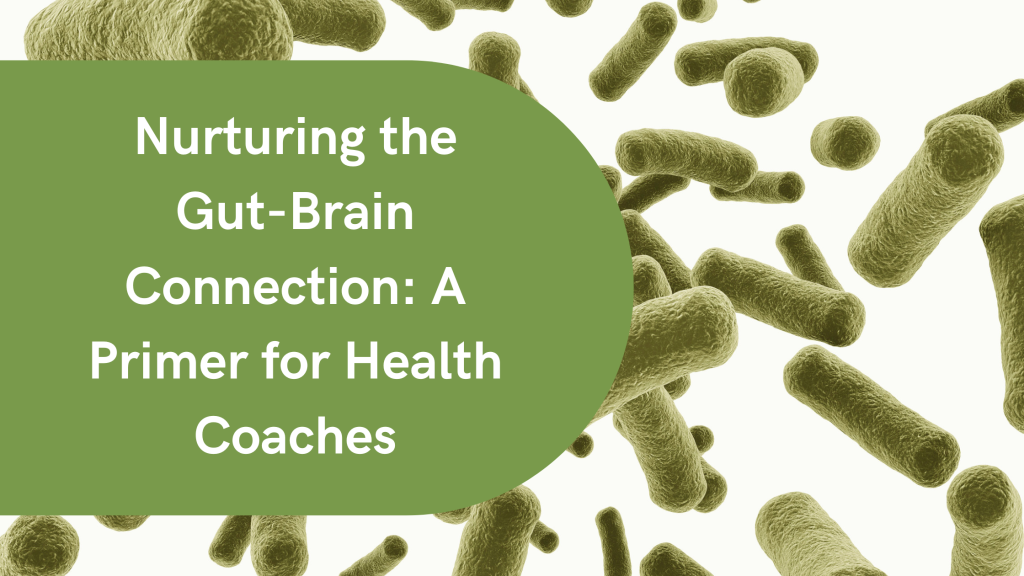In the fascinating realm of human health, one of the most intriguing connections lies within the intricate interplay between our gut and brain. As health coaches, understanding this relationship is paramount, as it can significantly impact our clients’ overall well-being, particularly concerning mental health issues like anxiety, depression, and cognitive decline.
The gut-brain axis serves as a bidirectional communication highway, where signals travel between the gut and the brain via the nervous system, immune system, and hormonal pathways. At the heart of this connection lies the gut microbiota, a diverse ecosystem of trillions of bacteria that call our digestive tract home.
Research has unveiled the profound influence gut bacteria wield over brain function. These microscopic residents produce neurotransmitters like serotonin, often dubbed the “feel-good” hormone, which plays a crucial role in regulating mood and anxiety levels. Moreover, they manufacture various metabolites and short-chain fatty acids, which can influence inflammation, stress response, and even neurogenesis, the process of forming new brain cells.
In the context of anxiety and depression, an imbalance in gut bacteria, known as dysbiosis, has been implicated in exacerbating symptoms. Conversely, interventions aimed at restoring microbial balance, such as dietary changes, probiotics, and prebiotics, have shown promise in alleviating mood disorders.
Furthermore, emerging evidence suggests a link between gut health and cognitive decline, including conditions like Alzheimer’s disease. Chronic inflammation, a common consequence of dysbiosis, may contribute to neurodegenerative processes, while a healthy gut microbiome appears to support cognitive function and protect against age-related decline.
As health coaches, we have a unique opportunity to empower our clients to optimize their gut-brain axis for improved mental well-being and cognitive vitality. Here are some actionable strategies to incorporate into our coaching practice:
- Promote a Gut-Friendly Diet: Encourage consumption of fiber-rich fruits and vegetables, fermented foods like yogurt and kimchi, and healthy fats, while reducing intake of processed foods and sugar, which can disrupt gut flora.
- Support Stress Management: Teach relaxation techniques such as deep breathing, meditation, and mindfulness, as chronic stress can negatively impact gut health and exacerbate mental health issues.
- Consider Probiotic Supplementation: Discuss the potential benefits of probiotic supplements with clients, particularly those experiencing gut-related or mood disorders. However, emphasize the importance of choosing high-quality products and consulting with a healthcare professional.
- Prioritize Sleep: Adequate sleep is crucial for both gut and brain health. Encourage clients to establish a consistent sleep schedule and create a restful sleep environment.
- Individualize Approaches: Recognize that each client’s gut microbiome is unique, and interventions may need to be tailored accordingly. Encourage experimentation and self-awareness to identify what works best for them.
By integrating these principles into our coaching practice, we can empower our clients to foster a harmonious relationship between their gut and brain, promoting not only mental health but also overall vitality and resilience. Together, let’s nurture the gut-brain connection for a brighter, healthier future.
BECOME A CERTIFIED COACH! APPLY FOR A DISCOUNT SCHOLARSHIP HERE

